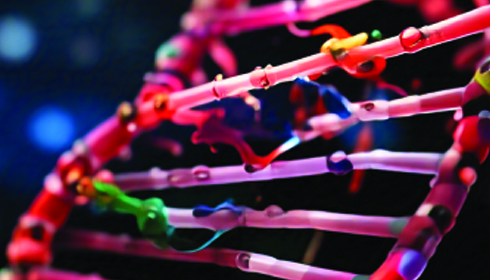
New Genetic Breakthrough Boosts Diagnosis and Hope for Infants with Rare Intestinal Disorders
At the tender age of two days, infant Sophie engaged in a critical struggle for survival. The rapid weight loss experienced by the patient raised concerns among medical professionals, leading to further investigation. Subsequent genetic testing identified the underlying issue as a rare condition referred to as CODE (congenital diarrhoea and enteropathies). This disorder impairs the function of intestinal cells, resulting in serious diarrhoea and nutrient malabsorption. Sophie's diagnosis prompted her parents, Samantha and Kyle, to fundamentally reassess their family's future. They transitioned from the typical experiences of early parenthood to navigating a complex array of medical treatments and frequent hospital visits.
Samantha reflects on the shift in their daily lives, stating, “Our days became dominated by medical treatments and regular hospital visits, necessitating a transition into the roles of both parents and home health-care providers for our first child.” Sophie's case illustrates the challenges encountered by numerous families dealing with undiagnosed infantile diarrhea— a condition that can be life-threatening if not addressed promptly.
Recent research conducted by Dr Aleixo Muise at The Hospital for Sick Children (SickKids) has revealed new genetic pathways associated with CODE. An international study published in the New England Journal of Medicine involved genome sequencing conducted on 129 infants who were suspected of having CODE. The study yielded notable results, offering a diagnosis for 48 per % of cases. This significantly surpasses the reported rates of 20 per cent and as low as three per cent in previous years. The research identified three novel genes—GRWD1, MYO1A, and MON1A—and provided important answers to 62 families that had previously faced uncertainty.
Dr Muise, who leads the Precision IBD and Monogenic Intestinal Diseases clinic at SickKids, states, “Undiagnosed infantile diarrhoea can be fatal; however, even in non-fatal cases, early diagnosis of rare conditions can offer essential answers for families.” This study enables the provision of diagnoses to a higher number of families and advances the development of precision treatments that are specifically tailored to individual genetic variants in children.
Sophie’s situation improved significantly following her referral to the Group for Improvement of Intestinal Function Treatment (GIFT) program at SickKids. She initiated total parenteral nutrition (TPN) to provide essential nutrients that her compromised gut was unable to absorb. Genetic tests further confirmed that she had microvillus inclusion disease (MVID), which is linked to changes in the MYO5B gene and is the second most common cause of CODE.
The research provides a clear diagnosis and marks an important advancement in the pursuit of precision therapies. Scientists, in collaboration with experts from Boston Children’s Hospital, Vanderbilt University Medical Centre, and UCLA, used advanced computational methods and zebrafish models to investigate the functional roles of newly discovered genes. Dr Muise remarked, “This exemplifies Precision Child Health in action.” The potential for targeted treatments may significantly alter the clinical environment for infants affected by these uncommon intestinal disorders.
Sophie is currently six years old and remains under observation while receiving TPN treatment. A new surgical method introduced by Dr Yaron Avitzur has significantly enhanced her health and quality of life, illustrating the practical impact of research on patient outcomes.
This significant study improves our understanding of the genetic foundations of CODE and establishes a benchmark for precision medicine in paediatric healthcare. The work illustrates the effectiveness of international collaboration and advanced technology in addressing intricate medical issues. The research indicates potential advancements for families and clinicians, suggesting a shift towards treatments tailored to the specific needs of individual patients. While the advances are promising, the transition from genetic discovery to widespread therapeutic application is lengthy and presents numerous challenges.